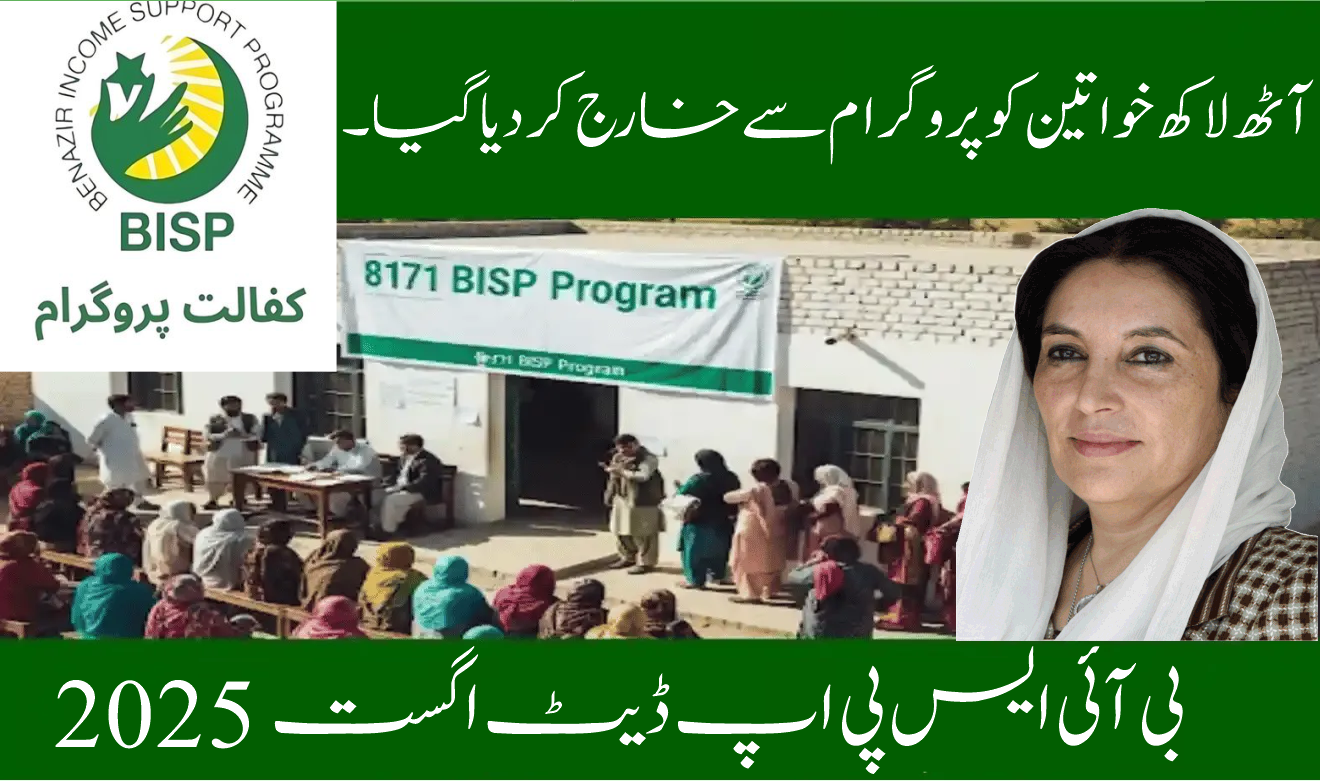The Benazir Income Support Programme (BISP) in Pakistan has been a key social welfare initiative, offering quarterly cash transfers to low-income households. For many women, it has been vital support for their families. In August 2025, the Government update confirmed that 820,000 women were removed from the program after a comprehensive review. This significant step aimed at strengthening transparency and fairness ensures financial assistance goes to the most deserving families. Through the 8171 system, beneficiaries can check status and see if they still meet the updated eligibility criteria. While the removal raised concerns, the reasons included improved financial standing, duplicate entries, or failure to meet the new rules. For many, this programme remains a lifeline, and such updates are necessary to keep the welfare initiative focused on the poorest households who truly need the support.
Why Were BISP 8171 August 2025 Update 820000 Women Removed from BISP
The government applied stricter eligibility requirements in the BISP August 2025 update, using NADRA and NSER (National Socio-Economic Registry) data for verification. This process checked incomes and assets to stop misuse of programs. As a result, ineligible participants were removed, and deserving poor families were added. These measures ensure genuine recipients continue to benefit, while penalties for fraud or misuse strengthen trust in the support programme.
Main Reasons for Removal
Here are the key reasons why women were excluded in the BISP 8171 August 2025 update:
- Government Job or Pension
- Women working in government service or already receiving pensions are considered financially secure.
- With a stable income, they no longer qualify for BISP cash support.
- Ownership of Vehicle
- Beneficiaries with a registered car, jeep, or motorcycle were disqualified.
- Vehicle ownership is treated as a marker of financial stability.
- Multiple International Travels
- Families who travelled abroad more than once were excluded.
- Frequent travel reflects higher income levels than BISP’s poverty threshold.
- Land and Property Ownership
- Households owning 12.5 acres or more of land or expensive residential/commercial properties were removed.
- The program prioritises landless and asset-poor families.
- High Electricity Bills
- Households consuming over 1,000 electricity units per month were disqualified.
- High utility bills signal higher affordability.
- Heavy Telephone or Mobile Bills
- Spending Rs. 10,000 or more annually on telecom bills resulted in removal.
- High communication expenses reflect a stronger financial base.
- Benefiting from Other Subsidy Programs
- Families already receiving subsidies through other government initiatives were excluded.
- This prevents duplication and ensures aid reaches those with no other safety nets.
What Does This Mean for Current Beneficiaries?
- Still Eligible: Poor families who meet BISP’s poverty standards remain fully secure in the program.
- Removed: Families with jobs, assets, or high expenditures have been excluded.
- New Space: Removal of ineligible families creates space for new registrations of deserving households.
How to Check BISP 8171 Eligibility in August 2025
The government has simplified the process of checking your BISP status through multiple channels:
1. SMS Method
- Send your CNIC number to 8171.
- You will receive a reply with your updated eligibility status.
- Click Here
2. Web Portal
- Visit the official 8171 BISP portal.
- Enter your CNIC to verify eligibility online.
3. Registration Centers
- Visit your nearest BISP Tehsil Office.
- Staff will assist in checking your record and updating details if required.
What to Do If You Have Been Removed?
If you believe your removal was a mistake, you can request re-verification:
- Visit your nearest BISP Registration Centre.
- Apply for a re-survey to update your data.
- Submit documents proving your financial condition.
- If found eligible, your name can be restored in the program.
Summary – Who Is Out and Who Remains in BISP
| Removed from BISP | Still Eligible for BISP |
| Government job holders | Jobless women |
| Pension receivers | Widows |
| Vehicle owners | Disabled women/households |
| Frequent international travelers | Landless poor families |
| Land/property owners | Orphans and vulnerable children |
| High electricity users | Families with no income |
| High telecom bill users | Poor households with children And Click Here |
FAQ
1. Why did the BISP 8171 August 2025 Update 820000 Women Removed from BISP?
To ensure fairness, the government excluded women who had jobs, pensions, land, vehicles, high electricity bills, or other subsidies.
2. How can I check if I am still eligible for BISP?
Send your CNIC to 8171, check via the official 8171 portal, or visit a BISP office for confirmation.
3. Can I reapply if I was removed?
Yes. You can request a re-survey at your nearest BISP office. If your data proves genuine poverty, your name may be restored. 4. How much is the BISP payment in 2025?
4. How much is the BISP payment in 2025?
The quarterly installment remains Rs. 13,500, with additional support for education and child-related expenses.
5. Are these changes permanent?
No. Eligibility is reviewed regularly. If your financial condition changes, you may qualify in future cycles.
Conclusion
The removal of nearly 820,000 women from BISP in August 2025 reflects the government’s commitment to transparency and accountability in Pakistan. For years, the cash transfers have been a lifeline for the poorest families, but ensuring only the most deserving beneficiaries continue to get support required strict checks. Through re-verification at 8171 offices, some who were excluded may be reinstated, while others remain out under new reforms. From what I have seen, this step reassures many that the programme is becoming more fair, transparent, and effective, ultimately protecting society’s vulnerable groups.

